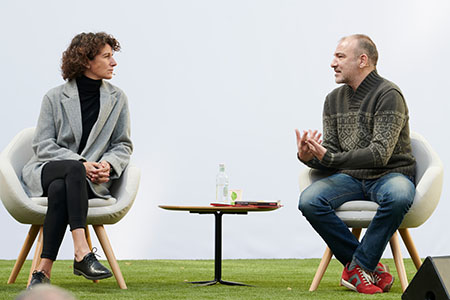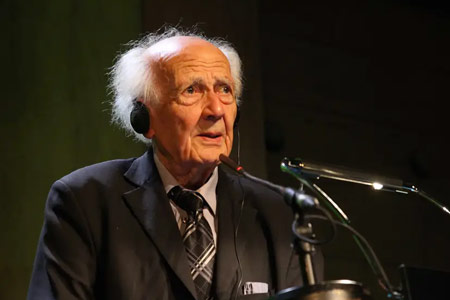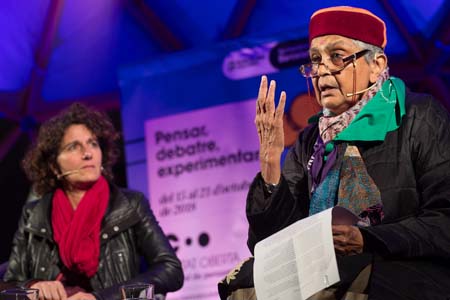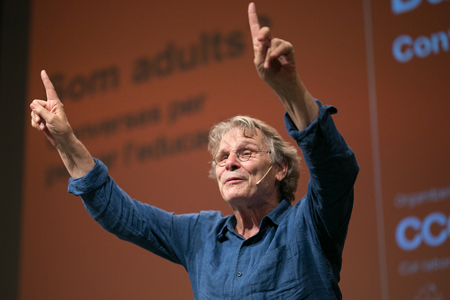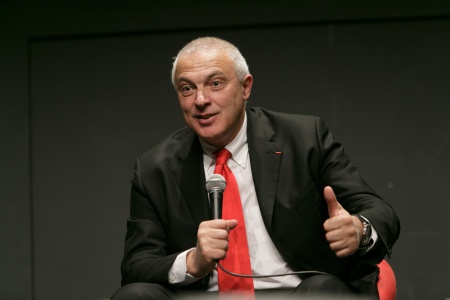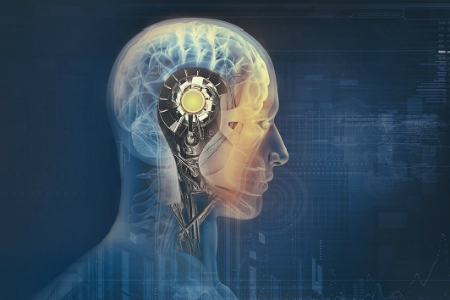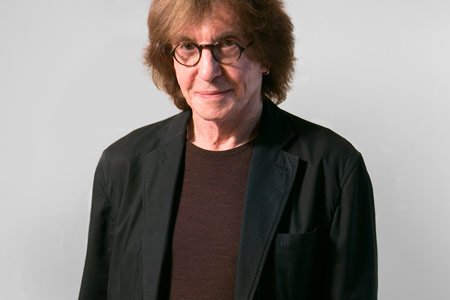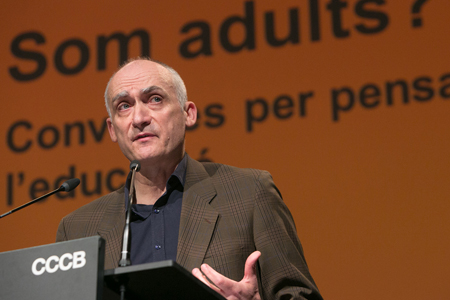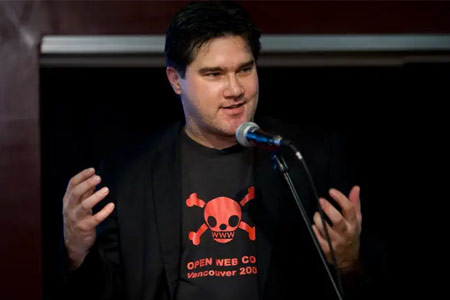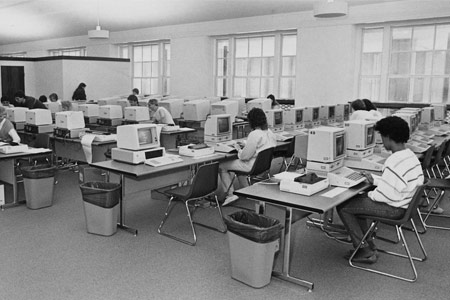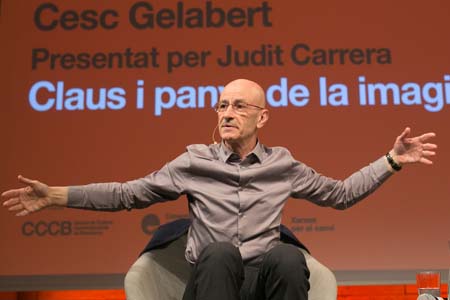Thinking About Education
In the current context in which educational agents such as schools, universities, families, the media or the workplace are being radically redefined, what role does education play? How have learning and knowledge-acquisition models changed? What are the new roles for teachers and students?
Marina Garcés & Guillem Sala
Why do we learn?
The philosopher Marina Garcés speaks with the sociologist and writer Guillem Sala about the publication of her most recent book, Escola d’aprenents (School of Learners, Galàxia Gutenberg).
Zygmunt Bauman
Education
In this uncertain world living under the dictatorship of an absolute present, ever changing and ephemeral, what role does education play? Zygmunt Bauman puts forth that modern liquid culture is not a culture of learning and accumulation anymore but rather a culture of aloofness, disconnection and forgetting.
Gayatri Spivak and Marina Garcés
Education of the Future
The Indian thinker Gayatri Spivak calls for slow education and defends the role of local schools and teachers. One of the world’s best known postcolonialism theorists, Spivak advocates creating spaces that are independent of the dominant culture to give voice to the most vulnerable members ...
Daniel Pennac
The School of Life
Journalist Anna Guitart talks with Daniel Pennac, writer and former secondary school teacher, about the relationship between childhood and adulthood, the role of imagination in education, and the expectations and promises which come together with growing up.
Nuccio Ordine
In defence of the useless
Is there such a thing as useful and useless knowledge? Does it make sense to wonder what philosophy is good for? How has the logic of profit saturated into the experience of knowledge? At a time when the teaching of philosophy, ethics and music have been almost completely wiped out of the syllabus and when traditional sites of education are going through radical and oftentimes contradictory changes, the philosopher and lecturer in literature Nuccio Ordine makes his claim for the importance of humanistic knowledge.
Henry Giroux: “All education is a struggle over what kind of future you want for young people"
Education always plays a central role – whether in a visible or a veiled way – in any ideological project. For anyone backing the transformation of the world into a fairer, more caring and democratic place, education is key, but people who believe that market logics are fundamental ...
Josep Maria Esquirol
The Generosity of Education
What kind of education can prepare us to brave the elements? How can we come to terms with imperfection and fragility? The present-day social and “cultural” context promotes a sort of no-limits ideology, which is none other than a consumerist adaptation to the idea of progress. This no-limits ideology opens up the way, on the one hand, to the priority of immediacy in a present that is already jeopardised by general acceleration and, on the other, to a horizon which, striving to appear as beguiling and fascinating, is bereft of any kind of hope. ...
Brian Lamb
The Edupunk experience
The new digital context blurs the barriers of learning as we know it. New concepts, such as Open Social Learning and EduPunk, are added which make reference to Expanded Education. An education that surpasses the limits of institutions, methodologies and subjects. Education becomes a network ...
Digital education is not just training in digital literacy
Carlos Magro Mazo
Technologies offer the opportunity of transiting from educational models based on transmission towards models based on active learning.
Lecture by Cesc Gelabert
Keys and locks of the imagination
The dancer and choreographer Cesc Gelabert, pioneer of contemporary dance in Catalunya, analyzes the conditions and capacities involved in the creation process. For Cesc Gelabert, it is essential that emotions and mind should dwell in the body to open up channels to a fertile imagination.
